
The Quarrymen are a British skiffle/rock and roll group, formed by John Lennon in Liverpool in 1956, which evolved into the Beatles in 1960. Originally consisting of Lennon and several school friends, the Quarrymen took their name from a line in the school song of their school, the Quarry Bank High School. Lennon's mother, Julia, taught her son to play the banjo, showed Lennon and Eric Griffiths how to tune their guitars in a similar way to the banjo, and taught them simple chords and songs.
Skiffle is a genre of folk music with influences from American folk music, blues, country, bluegrass, and jazz, generally performed with a mixture of manufactured and homemade or improvised instruments. Originating as a form in the United States in the first half of the 20th century, it became extremely popular in the United Kingdom in the 1950s, where it was played by such artists as Lonnie Donegan, the Vipers Skiffle Group, Ken Colyer, and Chas McDevitt. Skiffle was a major part of the early careers of some musicians who later became prominent jazz, pop, blues, folk, and rock performers, the Quarrymen and Rory Gallagher among them. It has been seen as a critical stepping stone to the second British folk revival, the British blues boom, and the British Invasion of American popular music.

Anthony James Donegan, known as Lonnie Donegan, was a British skiffle singer, songwriter and musician, referred to as the "King of Skiffle", who influenced 1960s British pop and rock musicians. Born in Scotland and brought up in England, Donegan began his career in the British trad jazz revival but transitioned to skiffle in the mid-1950s, rising to prominence with a hit recording of the American folk song "Rock Island Line" which helped spur the broader UK skiffle movement.

"One After 909" is a song by the English rock band the Beatles from their 1970 album Let It Be. It was written by John Lennon, with input from Paul McCartney, and credited to their joint partnership. The album version is the live performance from the rooftop concert which took place on 30 January 1969. This performance is also included in the Let It Be film. The song was written no later than spring 1960 and perhaps as early as 1957, and is one of the first Lennon–McCartney compositions. "One After 909" is perhaps more reminiscent of early American rock 'n' roll than any of the other songs from the rooftop show, and as a joke for the rooftop chatter, Lennon sings a variant on the opening line of "Danny Boy" after the song is finished.

Elizabeth "Libba" Cotten was an influential American folk and blues musician. She was a self-taught left-handed guitarist who played a guitar strung for a right-handed player, but played it upside down. This position meant that she would play the bass lines with her fingers and the melody with her thumb. Her signature alternating bass style has become known as "Cotten picking". NPR stated "her influence has reverberated through the generations, permeating every genre of music."
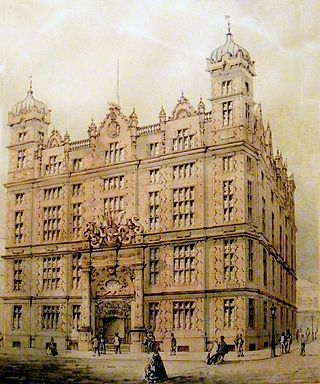
"Maggie May" is a traditional Liverpool folk song about a prostitute who robbed a "homeward bounder": a sailor coming home from a round trip.
"Rock Island Line" is an American folk song. Ostensibly about the Chicago, Rock Island and Pacific Railroad, it appeared as a folk song as early as 1929. The first recorded performance of "Rock Island Line" was by inmates of the Arkansas Cummins State Farm prison in 1934.
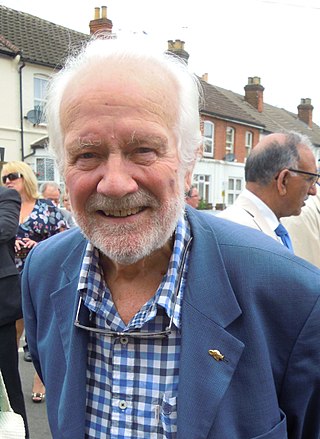
Charles James McDevitt is a Scottish musician, one of the leading lights of the skiffle genre which was highly influential and popular in the United Kingdom in the mid-to-late 1950s.
Nancy Whiskey was a Scottish folk singer, best known for the 1957 hit song, "Freight Train".
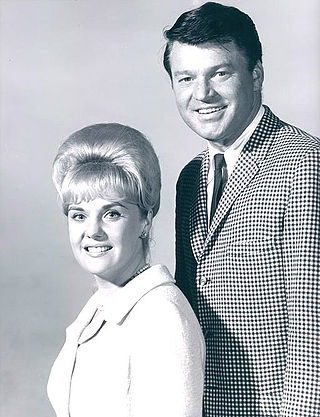
Farrell Haliday "Rusty" Draper was an American country and pop singer-songwriter and radio and TV host who achieved his greatest success in the 1950s.
"Hallelujah I Love Her So" is a single by American musician Ray Charles. The rhythm and blues song was written and released by Charles in 1956 on the Atlantic label, and in 1957 it was included on his self-titled debut LP, also released on Atlantic. The song peaked at number five on the Billboard R&B chart. It is loosely based on 'Get It Over Baby' by Ike Turner (1953).
Vernon Dalhart recorded "Puttin' On the Style" in December 1925 and by 1926 it was a popular hit. The song was collected in the Catskills by Norman Cazden from Ernie Sagar in 1945 showing that it had entered oral tradition. Another version has also been collected from oral tradition in West Virginia.
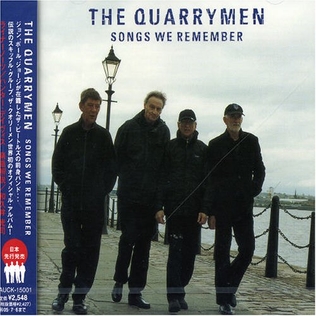
Songs We Remember is the third album by the re-incarnated version of the Quarrymen, which was the band that eventually evolved into the Beatles. It is also the final album to feature founder member Eric Griffiths before his death in 2005.

Get Back – Together is the second album by the reformed Liverpool band the Quarrymen, which was the band that, in its original conception, evolved into the Beatles. It is also the first of two albums by the band that feature all surviving founding members together, as while the name the Quarrymen name was used in the 1994 album Open for Engagements seen as the first album since the reformation, it only featured Rod Davis and part-time member John Duff Lowe. Eric Griffiths and Len Garry make their first appearances on a studio recording with drummer Colin Hanton also returning to the band for the first time since 1959, having previously appeared on the "In Spite of All The Danger" recording in 1958 as a b-side to a cover of Buddy Hollys "That'll Be the Day". It is also the only full length album featuring Pete Shotton who also returned to the band in 1997 but later retired due to ill health. Shotton subsequently died in 2017. Recorded and mixed at Liverpool Music House by record producer and recording engineer Lance Thomas.

Sixteen Tons of Bluegrass is an album by Pete Stanley and Wizz Jones produced by Chas McDevitt, and originally released in the UK1966 on Columbia Records. Wizz & Pete were probably the first British musicians to successfully interpret America's favourite traditional music for UK audiences. The album was also released on the Joker label in Italy as Way Out West, with a different cover design. Wizz Jones is quoted, describing the cover, "I've only seen this once, as I recall the alternative sleeve design is hilarious. A mini-skirted girl is perched on a gate being serenaded by a smart young man in blue jeans!"

Phillips' Sound Recording Services was a studio in the house of Percy Francis Phillips (1896–1984) and his family at 38 Kensington, Kensington, Liverpool, England. Between 1955 and 1969, Phillips recorded numerous tapes and acetate discs for Liverpool acts, people and businesses in a small room behind the shop his family owned.
Saturday Club was an influential BBC Radio programme in the United Kingdom, broadcast on the BBC Light Programme and later BBC Radio 1 between 1957 and 1969. It was one of the earliest – and for several years almost the only – radio programme in the country to broadcast pop music. Its longest-serving and best remembered host was Brian Matthew.
"Last Train to San Fernando" is a Trinidadian calypso song written by Sylvester DeVere, Randolph Padmore, and Mighty Dictator, the latter being a pseudonym for Kenny St. Bernard.
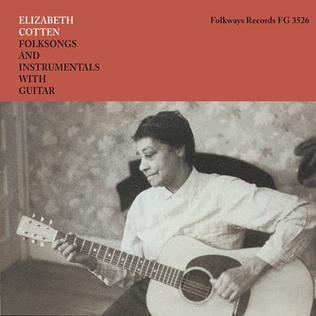
Folksongs and Instrumentals with Guitar is a 1958 album by American blues and folk musician Elizabeth Cotten and was released on Folkways Records as FG 3526. In 1989 it was reissued by Smithsonian Folkways as SFW40009 featuring Mike Seeger's updated notes with comments on Cotten's life, musical style, and song lyrics. The album is also known as Freight Train and Other North Carolina Folk Songs and Tunes and was originally released as Elizabeth Cotten: Negro Folk Songs and Tunes. It is best known for containing the earliest recording of her classic "Freight Train." The album cover was designed by Ronald Clyne.
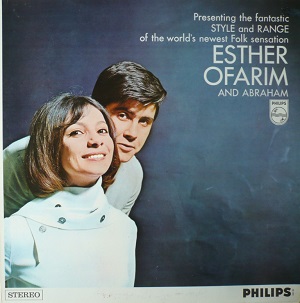
Esther Ofarim and Abraham is the American debut album by Israeli folk duo Esther & Abi Ofarim. It was released on Philips Records in 1963. The album was titled Songs Der Welt in Germany.












